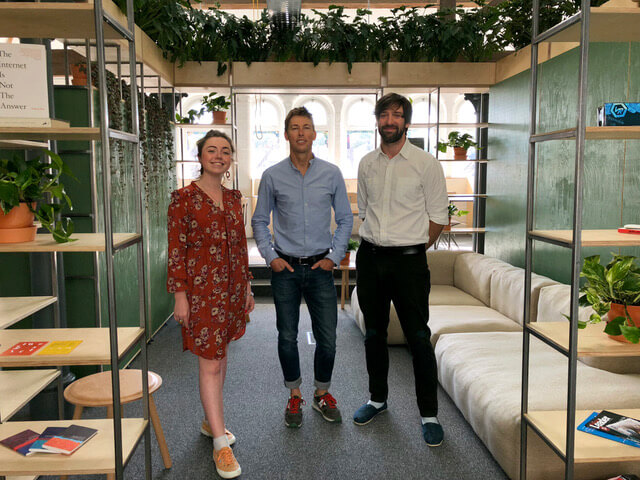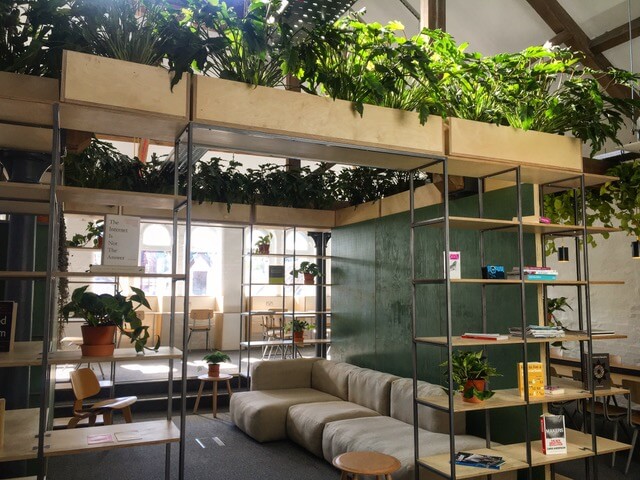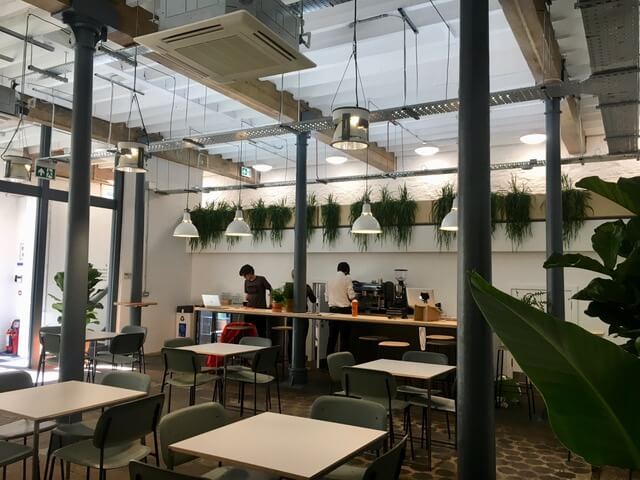A new coworking hub has opened its doors to digital businesses in Bristol. Framework is geared exclusively towards startups working in the development, design, AI, gaming and support sectors and aims to be at the centre of the city’s tech scene. We spoke to founder Gavin Eddy about his vision for the business.
Gavin Eddy is no stranger to setting up successful workspaces. Framework Bristol is part of the Forward Space family of coworking spaces, which includes Boxworks at Temple Meads – 20 shipping containers providing grow-on space for small businesses. We caught up with Gavin to find out why tech startups are the focus of his latest venture.
You’ve been involved with all sorts of different businesses – why coworking?
I was exposed to coworking in New York and I was just convinced it would be the way forward. I opened my first coworking space in Frome in 2007, then went on to acquire a building in Taunton and then came Boxworks, our first Bristol venture.
Then I met Ben Byford and the opportunity came up to create the Framework space at 35 King Street. What Ben was doing struck a chord – he works around AI and gaming and sets up interesting meetups and conferences in the tech scene. We felt there was an opportunity to create a tech-specific workspace in Bristol. Although there are coworking spaces, there wasn’t really one that could claim to be the heart of all things tech in the city. King Street came up and we saw the opportunity to do just that.
How is the space geared up for startups?
Framework is geared exclusively towards tech – we’re running a strong program of events in and around the digital scene in Bristol. We’re now hosting Codehub and South West Mobile meetups and we have a joint venture going with Vodafone to provide events aimed at the SME and tech market.
We’re giving the space for free to people who want to run events and we want to have something going on every night of the week – so if you run a meetup or a small hacker group, please get in touch.
The idea is that everyone gets to move freely around the building. Each floor will have a slightly different feel – the ground floor is very cafe-like, buzzy, with music playing. If you go to the top floor it’s a really stunning triple-height space with a library, a very quiet space. Then in the middle, we have meeting space, pods, and coworking space. We’ll have a space to suit everyone.

What kind of building were you looking for?
We tend to buy industrial heritage buildings – something old and a bit more characterful. We don’t have a set model for how we design them – every building different and needs to relate to its location and the market we’re trying to target.
But they do have some themes in common – we work closely with a Bristol design company called Shape Studio, and they design and build everything from scratch. Everything except the chairs.
All our buildings are in the city centre because we want people to be able to walk or use public transport to get there. We’re not trying to be a big, bland serviced offices operator, we want our spaces to be inviting so we recruit hosts from diverse tech and creative backgrounds.
The King Street building is beautiful. It’s a Grade II listed former cork warehouse next door to the Old Vic theatre. It’s a visually stunning building with huge windows, high ceilings and big loading doors – a classic New York loft type environment. We completely refitted it and now we have four floors of space to fill.
What criteria do you have for the startups you take on board?
They have to be tech and at the startup or early stage. The building isn’t enormous – only 6,000 sq ft – so we don’t want to let whole floors to a single company. We want a diverse community.
If you’re working in AI or gaming or web design or software development, or one of the support industries like tech PR and marketing, it could be ideal for you. We want a balanced ecosystem of businesses working across those fields. Teams from two to ten people and individual freelancers would suit us very well.
What kind of culture are you trying to foster?
A collaborative one. We’ve been doing this for a long time and we know buildings live or die based on the communities within them. Buying a building and spending lots of money to make it look good isn’t what makes a space a success in the long run. It’s the collaboration, the mentoring, the business support, the fun – that’s a really important element too.
We want it to be a nurturing space and a place people really want to be. We want people to feel energised by the people they’re around.
Why is coworking becoming so popular?
I think it’s the whole drive towards self-employment, self-reliance and entrepreneurship that the government is pushing. It’s the understanding that you’re not going to have the same job for life – it’s estimated that most millennials will have five significant jobs in their careers and people will certainly have to work until they’re much older. Coworking reflects the changing nature of the jobs market – people now have to make their own jobs.
We’re arguably now in the third industrial revolution. Every industry is being touched by technology and connectivity. Tech businesses are by their nature a lot more mobile than other industries. The coworking environment is really suited to those sorts of businesses.

How will the coworking industry change in the future?
I think we’re going to see a lot of consolidation. There has been a huge growth in the number of spaces overall, but over time I think we’ll see some larger operators emerging.
We’ll probably also see more specialisation – to date, coworking spaces have been cross-sector but we’ll see more sector-specific spaces emerging. It’s already happening in music and TV/ digital media.
I think spaces will generally get bigger, as people develop the model. Some economies of scale will be realised. I think we’ll see spaces encompassing more things, almost like villages. So you’ll have your gym, cafes, bars, restaurants and places where you can get your laundry done. In London, we’re already seeing co-living environments alongside coworking. So I think we’ll see more spaces that look like communities and villages.
Where do you draw inspiration from?
That comes from being very well-connected. I’m very aware of my own limitations and if there’s something I don’t know about, I have no problem going to ask people about it. It’s always better to fess up because, on the whole, people usually want to help. Most people who are passionate about what they do also love to talk about it – so ask them for help!
Get a mentor – everyone should have a mentor. I don’t care how senior you are in your company or how old you are, there’s always someone who’s done it better than you or has made the same mistakes you’re about to and can stop you. Get a mentor and talk to them as much as you can.
Free trial days are available. Find out more on the Framework website.
